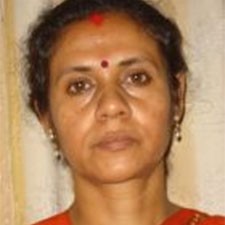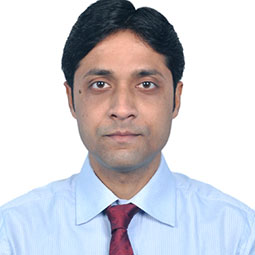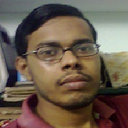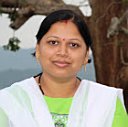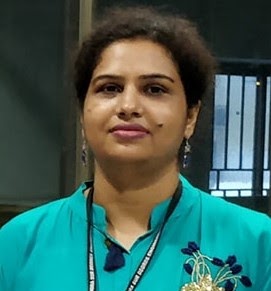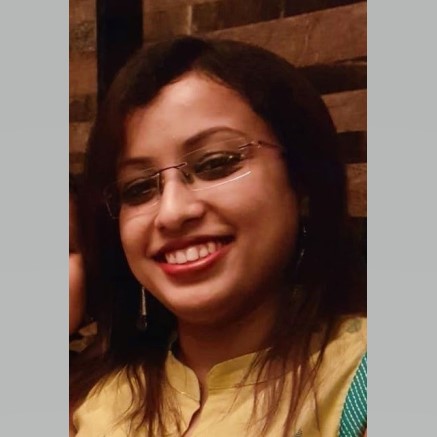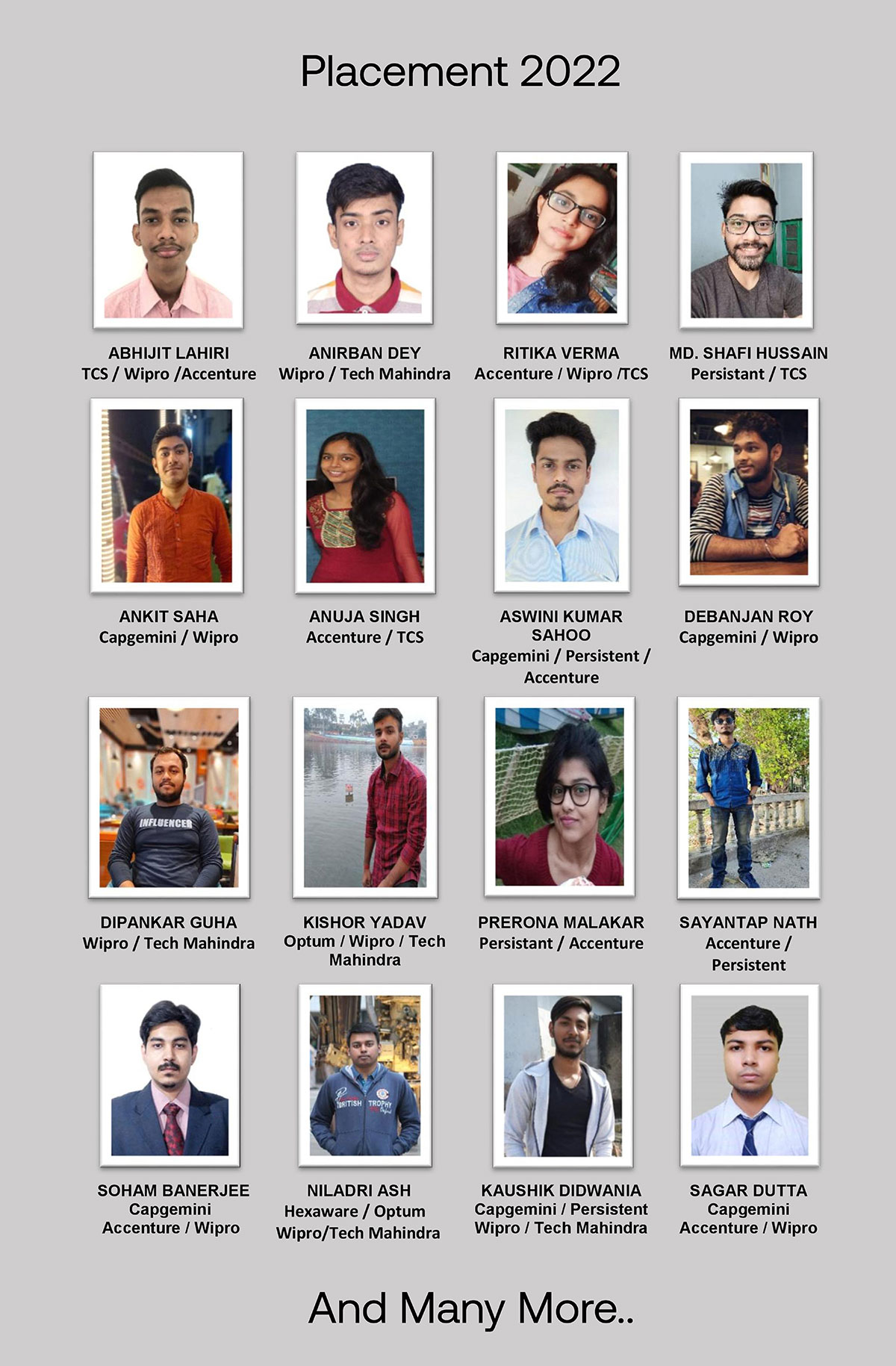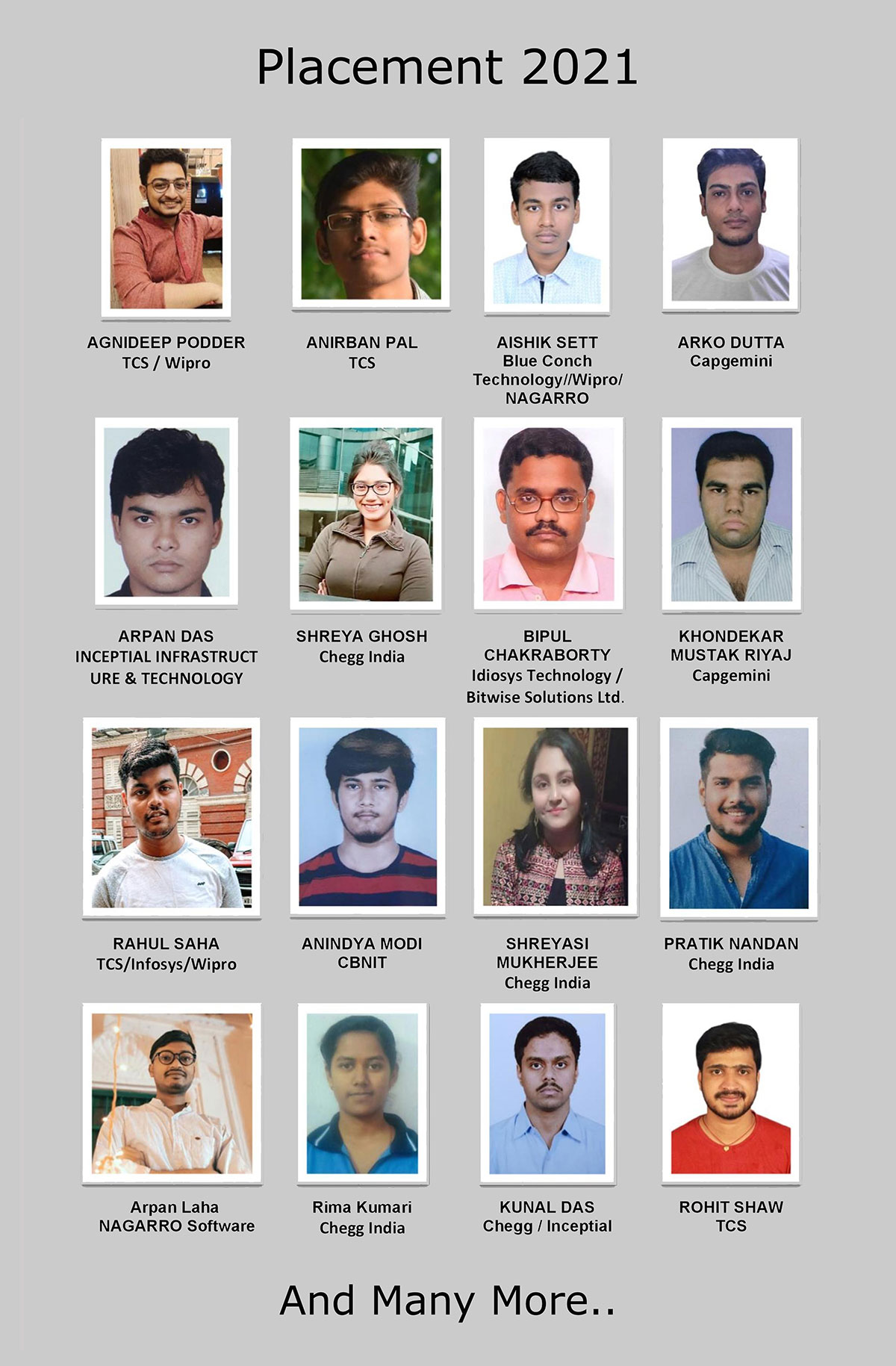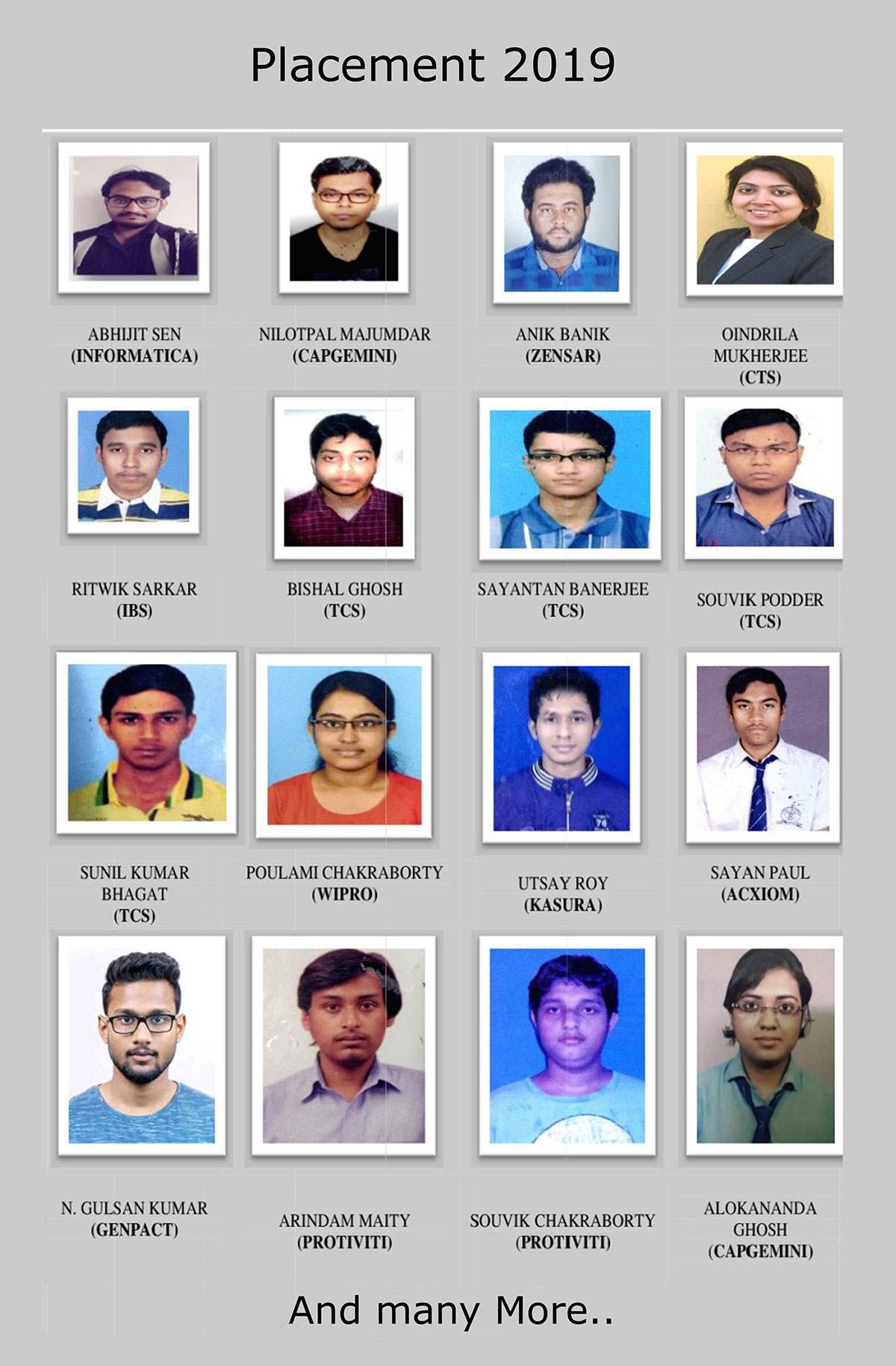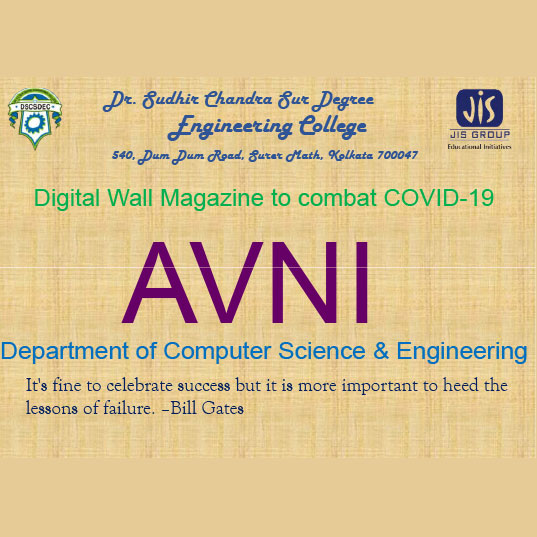B Tech in Computer Science & Engineering
The Department of Computer Science and Engineering, since its inception in 2009, has always attracted the best of engineering aspirants from all over the country. It is successful in producing skilled and competent Computer Engineers and Entrepreneurs ready to satisfy the needs of the industry and society at large.
The Department is equipped with adequate infrastructure to support academic, research and extra-curricular activities for the all-round development of our students with well-qualified, skilled and experienced faculty members. The department frequently organizes workshops, invited talks, seminars regularly for the benefit of the student and faculty community.
The Department has an impressive placement track record with 85% of the students placed in reputed organizations.
Overview
This stream is aimed at providing training in Computer Engineering, software design and hardware-software integration instead of only Software Engineering or Electronic Engineering. Computer Engineers are involved in many hardware and software aspects of computing, from the design of individual microprocessors, personal computers and supercomputers to circuit design. This field of Engineering will not only make the students aware of how the computer systems work, but also help them understand how to integrate each of them to make them work in the bigger picture.
Introduction to the course
One of the most sought after courses amongst engineering students, Computer Science Engineering (CSE) is an academic programme which integrates the field of computer Engineering and Computer Science. The programme, which lays emphasis on the basics of computer programming and networking, comprises a plethora of topics. The said topics are related to computation, algorithms, programming languages, program design, computer software, computer hardware etc.
Computer science engineers are involved in many aspects of computing, from the design of individual microprocessors, personal computers and supercomputers to circuit designing and writing software that powers them.
The program aims at designing, developing and troubleshooting computing devices (such as personal computers, supercomputers, robots, smart phones, networking devices, embedded devices), focusing the underlying fundamental issues (like processor architecture design, operating system design, memory management, digital system design, communication protocol design, software development and database management) in the most efficient and effective way.
Learning outcomes for Computer Science students:
- Systems Thinking: Analyze, design, implement, and evaluate a computer-based system, process, component, or program to meet desired needs.
- Problem-Solving: Identify problems and formulate solutions for systems and organizations while reconciling conflicting objectives and finding compromises.
- Communication: Communicate effectively with a range of audiences.
- Teamwork: Work effectively as part of a team to develop and deliver quality software artifacts.
- Context Awareness: Design solutions using approaches that integrate ethical, social, legal, and economic responsibilities.
- Cultural and Global Awareness: Recognize the applicability of computing and evaluate its impact on individuals, organizations, and global society.
- Professional Practice: Evaluate and use appropriate methods and professional standards in computing practice.
- Professional Development: Explore historical, current, and emerging techniques and technologies, founded on a commitment to lifelong learning and professional development.
- Technical Expertise: Apply knowledge of computing and mathematics within technical domains.
- Pragmatic Approach: Apply computing theory and programming principles to practical software design and development.
Eligibility
Candidates must pass Higher Secondary (10+2) Examination of West Bengal Council of Higher Secondary Education or equivalent examination from a Council/Board recognized by the State Government / Central Government concerned, with Individual pass marks (in both theory & practical wherever applicable) in Physics and Mathematics as compulsory subjects along with Chemistry/ Biotechnology/ Biology/Computer Science / Computer Applicaon) having minimum of 45% marks in the above subjects taken together (40% for Reserve Category candidates) as well as pass in English with a minimum of 30% marks (for all categories of candidates) in the said qualifying examination. Age restriction-the lower age limit is 17 (seventeen) year Age restriction-the lower age limit is 17 (seventeen) year
Faculty Details
Lab Facilities
In DSCSDEC we have all the B.Tech laboratory facilities as per WBUT syllabus. Existing laboratories are:
- Programming and Data Structure Lab
- Operating System and Computer Networks Lab
- Database Management System Lab
- Computer Architecture Lab
- Artificial Intelligence Lab
- Computer Center
Career Opportunities
Boom in the CSE sector has led to lucrative career opportunities for individuals. With the ever increasing employment opportunities, the demand for CSE experts too has increased. Computer Science Engineers, after completion of their course, generally get job opportunities across various industries like IT/Software Companies, Academic Institutions, Sales and Marketing firms, Journalism, editing and content, Engineering firms etc.
Job Profile |
Role |
System Database Administrator |
System Database Administrator typically oversee the security, performance, and integrity of the database. This also includes planning the structure and troubleshooting issues. |
Computer Programmer |
Computer programmers create the code for software applications and operating systems. The code created helps computer applications on computer run. |
Engineering Support Specialist |
Engineering support specialist provide technical support and assistance to consumers and businesses related to issued involving technical, hardware and software system. |
Data Warehouse Analyst |
A data warehouse analyst collects, analyzes, mines and helps the business leverage the information stored in data warehouses. |
System Designer |
The role of a systems designer is to define the architecture, interfaces and data for a system. |
Software Developer |
The role of software developers is to develop applications that enable people to perform specific tasks on a computer or another device. |
Software Engineer |
Software engineer design, develop, maintain, test, and evaluate computer softwares. |
Lecturer/Professor |
A Computer Science lecturer or professor would impart knowledge of the subject. The role will also include teaching students about the nuances of Computer applications and designs applicable in the field. |
Computer Operator |
The role of a computer operator is to maintain logbook, check viruses, upgrade software and carrying out basic etc. |
Research Analyst |
Research analysts conduct surveys, document data, collect information via internet and conduct research. |
